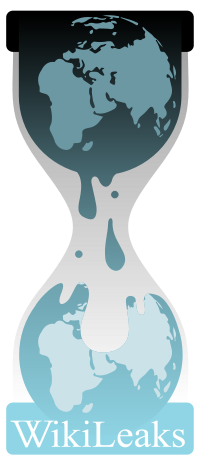WikiLeaks: Threat to Free Speech
 For WikiLeaks' supporters, the freedom of speech is both their rallying cause and their powerful protector. However, their systematic promotion of a right to leak by their signature reliance on leaked quality of information desecrated the First Amendment as much as they advanced it.
In the history of journalism, WikiLeaks is the first news organization that defined its core mission and identity by its reckless exercise of the constitutionally protected right of everyone but the original leaker to publish leaked materials. If the ultimate goal served by the First Amendment were the creation of maximally informed public by the freest flow of information, WikiLeaks is indeed its undeniable hero.
For WikiLeaks' supporters, the freedom of speech is both their rallying cause and their powerful protector. However, their systematic promotion of a right to leak by their signature reliance on leaked quality of information desecrated the First Amendment as much as they advanced it.
In the history of journalism, WikiLeaks is the first news organization that defined its core mission and identity by its reckless exercise of the constitutionally protected right of everyone but the original leaker to publish leaked materials. If the ultimate goal served by the First Amendment were the creation of maximally informed public by the freest flow of information, WikiLeaks is indeed its undeniable hero.
The First Amendment, however, has always stubbornly rejected any attempt to identify it with one particular justifying rationale. Instead, it chose to vindicate its greatness by its generous protection of a colorful array of interests: to enable people to speak without fear of retaliation, to promote individual autonomy, to create tolerant culture, to facilitate democratic self-governance and human progress, among many others.
Given this iridescent quality of the Great Document, WikiLeaks' fanatical devotion to "openness" becomes a frustratingly difficult concept. While it seems pretty clear that the First Amendment, as it stands today, does extend its legal protection to WikiLeaks, it is still debatable whether the organization has done more good than damage to this diverse set of values that the First Amendment seeks to serve in the first place.
It's important to realize, however, that what's at issue has never been and should never be the dangerous content of WikiLeaks' founding philosophy that condemns concentrated government or corporate powers and glorifies the efforts to subvert them. However harmful the consequences, if ideas become powerful by prevailing over opposing viewpoints in the relentless "marketplace of ideas," as envisioned by John Stuart Mill and Justice Wendell Homes, they deserve unqualified First Amendment protection.
However, governments fear WikiLeaks not because of the power of its ideas to persuade and attract followers; instead, the real power of WikiLeaks to harm, bully, as well as to do good originates from its particular use of opinions and information produced by others. Even if WikiLeaks has never been an original leaker, its very existence depends on the shock value produced by forcefully transporting materials from the protected private sphere to the public domain without the consent, actually against the will of, their rightful owners.
In cases where governments have been withholding information for the purpose of hiding misdeeds or deliberately misleading the public, the press serves its highest function by exercising this inherently coercive power in the name of public good. Before WikiLeaks, mentioning of free press conjured up images of celebrated moments such as releasing of the Pentagon Papers or the pictures from Abu Ghraib. However, when this privileged right is exercised either frivolously or frequently, it will shake the very foundation of the First Amendment by unduly interfering with individuals' process of forming and communicating opinions.
For example, the more successful WikiLeaks becomes in eradicating a sense of restraint in the journalistic or casual use of leaked information, the less secure people will feel in communicating their ideas to their confidants. This will create an undue burden on the speaker, causing a chilling effect on private speech. Especially given the Supreme Court's repeated refusal to mark out any legally protected zone of privacy free from media intrusion, this will inhibit private speech not only by public officials but also by ordinary citizens.
Furthermore, WikiLeaks' notion of "transparency" is an absurd infringement on liberty that threatens a diversity of ideas among policy makers. By seeking to demolish invisible walls between speakers and unwanted audiences, it will discourage people from expressing ideas that they suspect will be hostilely received by the public. This nagging fear will not only produce an undesirably homogenizing effect but it will also undermine a self-governing democracy by weakening a vibrant culture of free expression underlying it.
Yet, the most unpleasant aspect of WikiLeaks' recent disclosure of classified state documents is its shocking disregard for diplomats' right to exercise their freedom of speech in the most responsible way they see fit. A decision to guard one's mouth by carefully choosing one's audience, especially in situations where their words can potentially victimize real people or can significantly harm the world, ought to be seen as an integral part of speech making process that people deserve as autonomous moral agents.
Seen in this context, the dilemma created by WikiLeaks ought to be understood not only as a conflict between free speech and national security, but also as a conflict among competing interests within the First Amendment. This is not to deny that WikiLeaks does not deserve any credit for the work it has done in informing and invigorating public debates worldwide on a wide range of issues. At a more profound level, though, I still believe that Mr. Assange, the founder of WikiLeaks, has done a better job flaunting his utter lack of reverence for the First Amendment than he successfully fulfilled its important functions.
